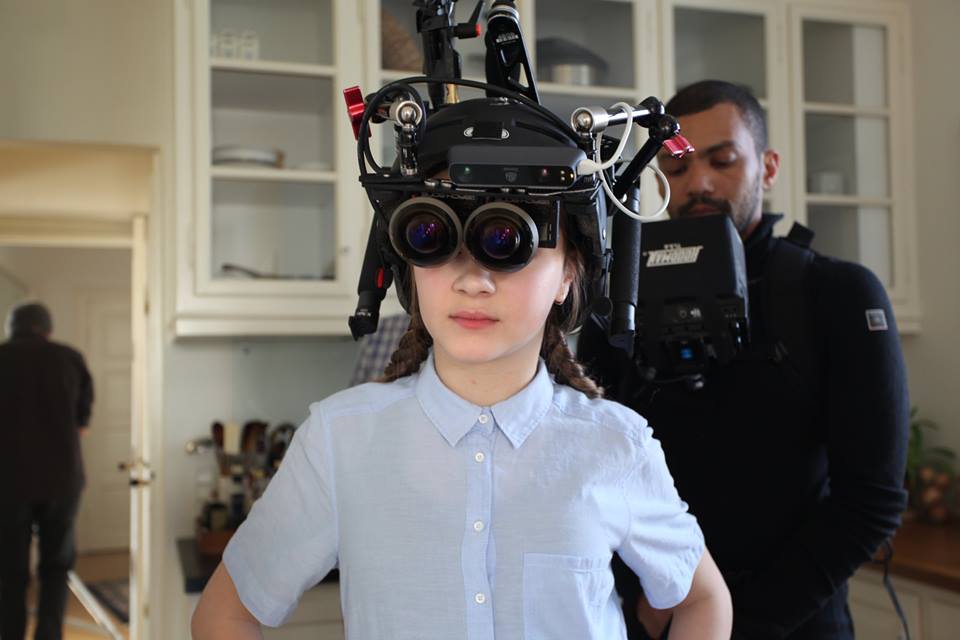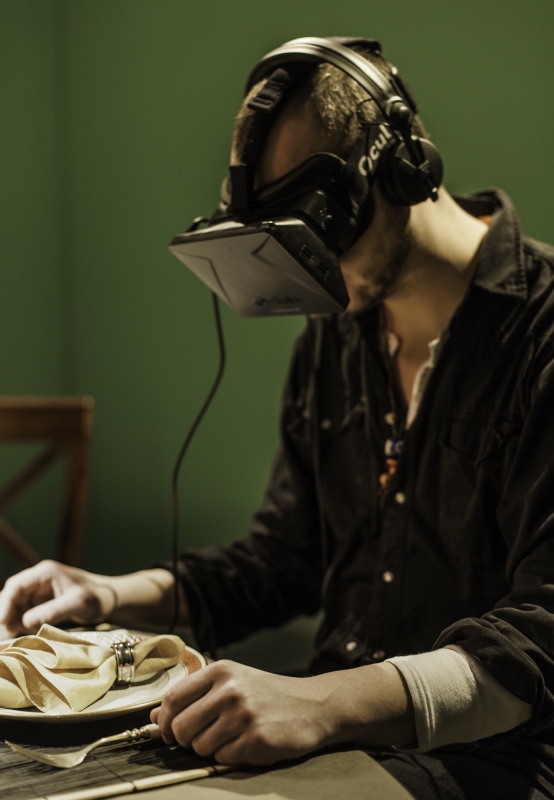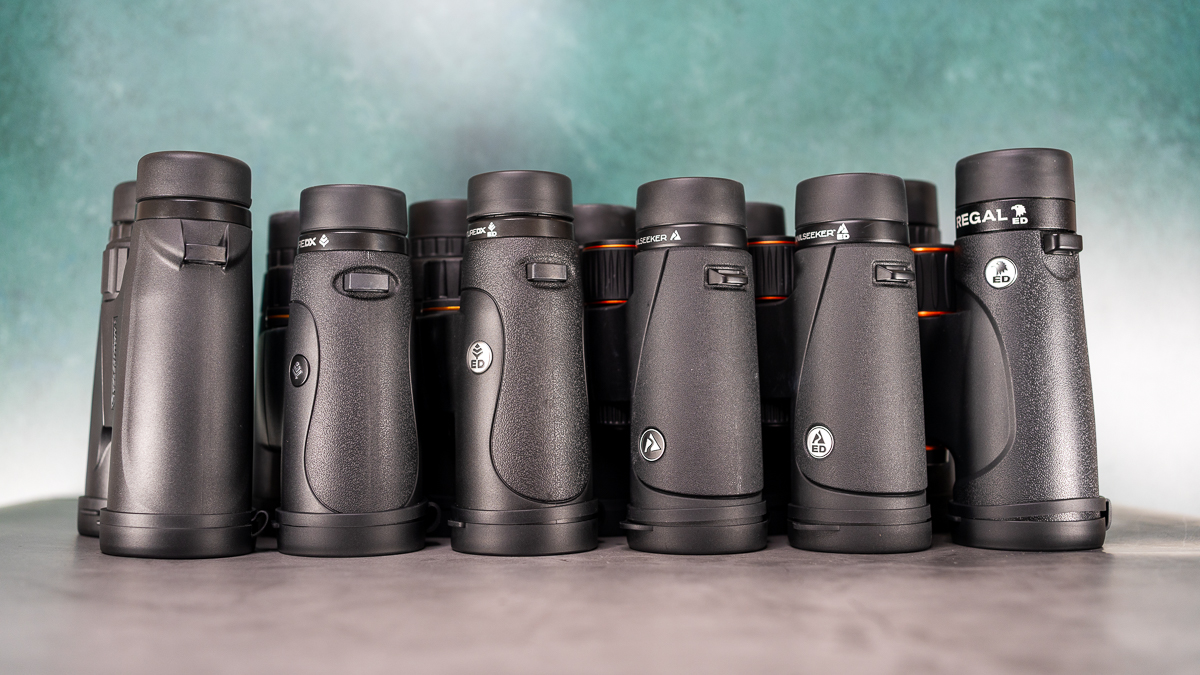Virtual Reality Could Be Film's Next 'New Wave'

A good movie can transport audiences, taking them to other worlds and briefly immersing people in characters' lives. And with virtual-reality technology, movie writers and directors have more tools at their disposal than ever before to create immersive experiences.
Danish filmmakers Johan Knattrup Jensen and Mads Damsbo and their production company Makropol are using virtual-reality (VR) technology to explore the boundaries of movie narratives, building on traditional visual storytelling and introducing new opportunities for audiences to interact with plotlines and characters — and with one another.
Their short film "Ewa: Out of Body," premiered at the 2016 Cannes Film Festival, and enabled viewers to see the world through the eyes of Ewa, the main character. The short is a brief introduction to Ewa's life. A planned feature-length film will allow audiences to share her experiences from infancy through adulthood, centering on a significant conflict with her mother. [Beyond Gaming: 10 Other Fascinating Uses for Virtual-Reality Tech]
Seeing and experiencing
The filmmakers say VR could inspire movie creators to approach visual narratives in an entirely new way.
"VR opens up a different way of telling stories — one you haven't seen before," Jensen, the film's director, told Live Science. "Instead of simply trying to tell a story, I'm trying to convey an experience."
Jensen shot "Ewa" as a single take, which means that the camera's point of view — what the audience sees in the headset — travels uninterrupted from start to finish, mimicking the way that we experience the world. Making a film with no edits, Jensen explained, meant that all the movements of the actors and the camera had to be carefully choreographed and coordinated at every step, with movements linked to actions that would advance Ewa's story.
"How do we acknowledge the audience's presence in the film, and how do we use that for telling the story? This is something we're really interested in," Damsbo said. And with VR, filmmakers can begin to imagine an active, participatory role for audience members within their movies, Damsbo told Live Science.
Get the world’s most fascinating discoveries delivered straight to your inbox.
VR gets social
It might seem that wearing VR headsets in a theater would isolate viewers from one another, and may reduce the shared enjoyment of a movie, but Jensen emphatically disagrees.
"If that were true, we'd say books were an anti-social medium," he said. "VR has the power that any good experience has — right after you have it, you want to share it."
Another Makropol VR film shown at Cannes, "The Doghouse," did exactly that. It offered a group of five viewers the chance to not only participate in a communal VR experience — a film about a family sharing a meal — but also to discuss it after the movie ended and see how their perceptions of the same story differed, depending on whose role they were playing.
SKAMMEKROGEN // THE DOGHOUSE - interview with the artists on Vimeo.
"We wanted to say, there isn't really one truth about a story — about this family dinner — there are five truths," Damsbo said. "And each one is just as true."
Talking about the film enabled participants to appreciate how VR allowed each of them to experience a very different narrative, he added. [Photos: Virtual Reality Puts Adults in a Child's World]
"A new language is being born"
Some established members of the Hollywood community are ready and willing to explore what VR technology can do. Michael Bay, director of the blockbuster "Transformers" movies, is embracing VR. He recently announced a partnership with the production company The Rogue Initiative to create VR experiences that include highly dynamic action sequences — a trademark of Bay's movies — within an immersive environment.
And at the 2016 Cannes Film Festival, a roster of VR short films — live action and animated — which included Makropol's "Ewa" and "The Doghouse," were presented at a special pavilion. Festival officials even included a cardboard VR headset in the event's official "swag bag" giveaway.
However, certain moviemakers have expressed skepticism about VR's effectiveness for telling stories.
At Cannes, director Steven Spielberg suggested that VR might offer audiences too many choices, which could lead them to "forget the story" that the writer and director imagined.
But perhaps allowing a viewer to choose among several stories means that the director's role is more important than ever, Jensen suggested.
"I can still control my audience," Jensen told Live Science. "But now I have to make a game with them, where I try to persuade them to find the story — to find my story," he added.
"The medium is changing, aesthetics are changing and a new language is being born. We can only embrace the art of this new language," Jensen said.
(Looking for a VR headset? Our sister site Tom's Guide put together a great primer on the best ones on the market right now: The Best VR Headsets.)
Original article on Live Science.

Mindy Weisberger is a science journalist and author of "Rise of the Zombie Bugs: The Surprising Science of Parasitic Mind-Control" (Hopkins Press). She formerly edited for Scholastic and was a channel editor and senior writer for Live Science. She has reported on general science, covering climate change, paleontology, biology and space. Mindy studied film at Columbia University; prior to LS, she produced, wrote and directed media for the American Museum of Natural History in NYC. Her videos about dinosaurs, astrophysics, biodiversity and evolution appear in museums and science centers worldwide, earning awards such as the CINE Golden Eagle and the Communicator Award of Excellence. Her writing has also appeared in Scientific American, The Washington Post, How It Works Magazine and CNN.




